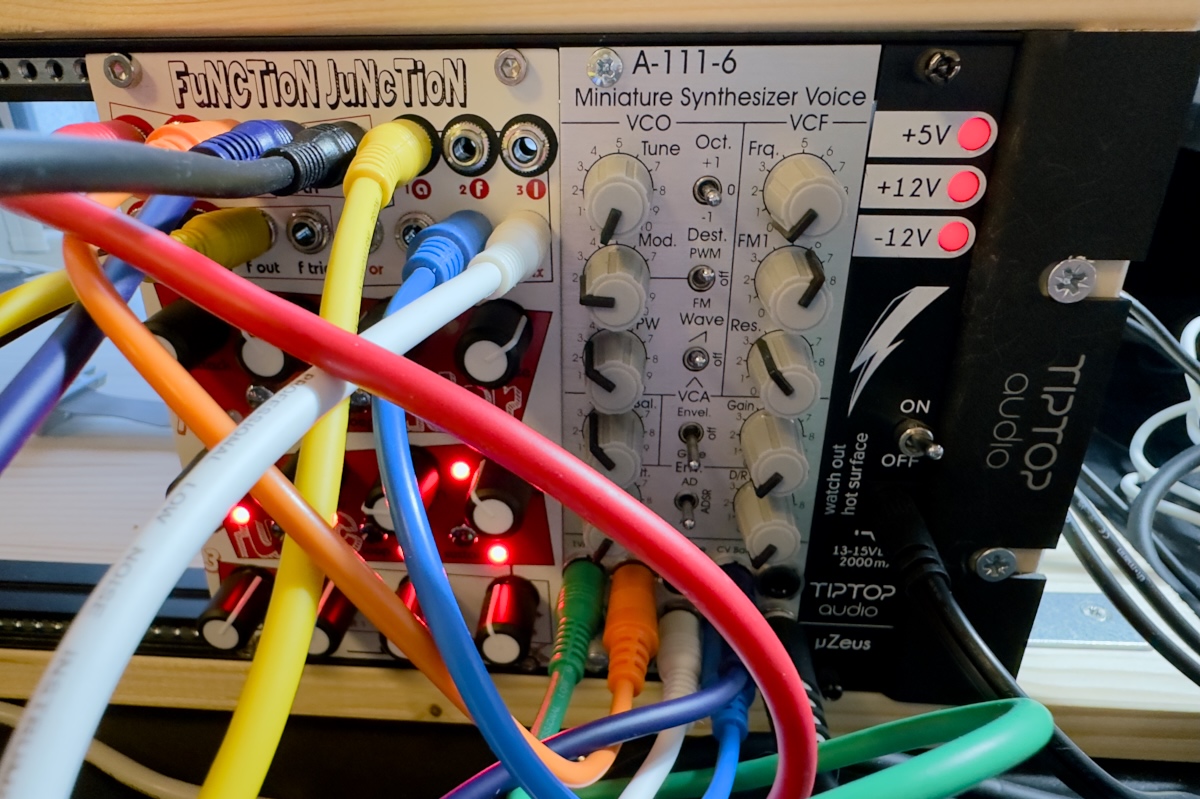
- 3/31/2024
- 4 min read
I Start Deep Dive Into Eurorack Modular Synthesizer And Learn Audio Signal Processing
Just a month ago, I decided to start my journey into the world of modular synthesizers. Modular synthesizers are electronic musical instruments that generate and manipulate sounds using various components (modules) connected by cables. It differs from traditional synthesizers, where the components are fixed in a single unit.
What is Eurorack? Eurorack is a modular synthesizer format that uses 3.5mm jacks and cables for patching the signal. The dimension of the module also has standard measurements. It is the most popular format for modular synthesizers.
There’s no limit to the possibilities of sound creation and how big the system is with modular synthesizers. The only limit is our imagination and budget 💶😆.

There are some reasons why I started building my modular synthesizer system instead of buying more traditional synthesizers.
Learning audio signal processing and electronics
As a software engineer, I’m interested in learning audio signal processing. Modular synthesizers are the way for it. I can see and hear how the audio signal flows from one module to another. I can also experiment with different signal-processing techniques. For example, filtering, modulation, and effects.
Currently, I am learning how to design and build my modules. Since my current skill set is more on the software engineering side, I started with learning about digital signal processing (DSP) and audio programming with C++ and Faust programming language. Later, I will deploy the DSP code to a microcontroller and build my modules. So, I also need to learn about electronics and PCB design. A lot of things to learn, but it’s scratching my engineering itch.
Here’s my work-in-progress on the first module I designed: QuantVCO. It’s a dual oscillator with a built-in quantizer. Currently, it’s still in simulation with VCV Rack software.
I want to build my unique system
I can build my unique synthesizer system that fits my needs and workflow by doing modular synthesizers. I can choose and buy the modules I need and connect them in any way I want. I can also mix it with the module that I designed by myself. It’s like building a LEGO set but for sound.
For my system, I choose to start small. Currently, I only have 2 modules:
- Doepfer A-111-6. It’s a VCO (Voltage Controlled Oscillator) module for generating sound waves. It also has a built-in VCF (Voltage Controlled Filter), VCA (Voltage Controlled Amplifier), and envelope generator.
- Cre8audio Function Junction. It’s a utility module. It has 4 sections: envelope generator, LFO (Low-Frequency Oscillator), function generator, and mixer with attenuverter.
- The case and power supply are from the Tiptop Audio Happy Ending Kit. I designed and built the wooden case by myself.
The third module I want to add to my system is QuantVCO. The module I mentioned earlier. I hope I can finish it.
Supporting the DIY community and small synthesizer business
I also want to support the DIY community and small synthesizer business. There are a lot of small companies and individuals that design and build their modules. They have their unique design and sound. By buying their modules, I can support their creativity and innovation. I also can learn from their design and build my modules.
People who are really serious about software should make their own hardware.
— Alan Kay
I’m fascinated with music and software engineering. As in the quote above, I want to make my own hardware. In a musical context, I want to make my own musical instrument. Modular synthesizers are the perfect combination of music and engineering.